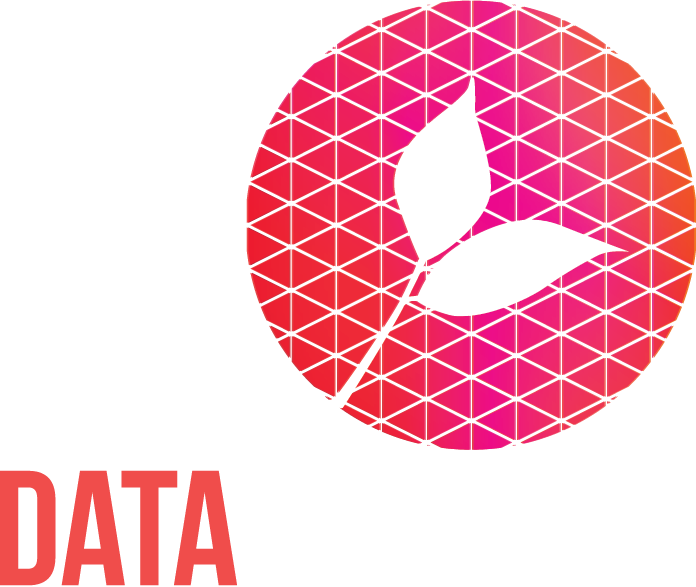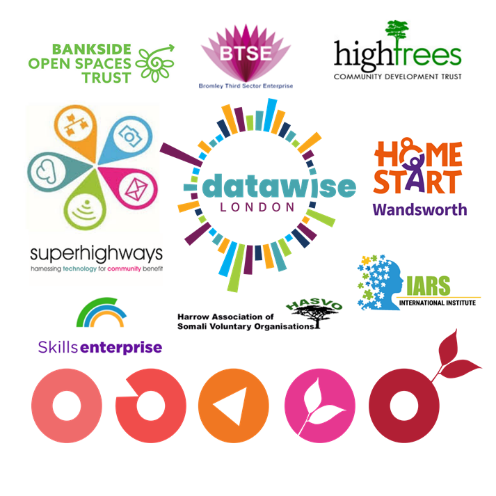Advancing data maturity in a cohort of organisations
In June 2021, a group of small charities completed the Datawise London Data Cohort Programme. They had spent 10 months focusing on achieving their data goals with training and support in data literacy, tools and skills provided by Superhighways and programme partners acting as mentors.
Data Orchard were asked to independently measure the programme’s impact by conducting baseline and post-project data maturity assessments with each of the cohort organisations.
The baseline assessments helped the charities and the support providers to focus their priorities and shaped the content and ideas for the learning programme.
“It was a really useful way to prioritise and set our workplan going forward” Katie Hall, Data Manager, Bromley Third Sector Enterprise.
The follow up assessment enabled us to see what difference the programme had made to the cohort’s data maturity.
An overall shift in data maturity
Our assessment showed the starting picture of data maturity for the cohort was not dissimilar to that of the sector as a whole (see our State of the Sector Data Maturity report).
The boxplot chart above shows the range of data maturity scores (on a scale of 0 – 5) for the cohort before and after the programme. Seven charities took part in the baseline assessment before the programme, and as one had to drop out, six took part in the reassessment afterwards.
The whole programme took place during the Covid-19 pandemic and lockdown periods. This presented considerable challenges, both to the operations of the participating charities and to Superhighways, in delivering and adapting the data support programme.
At the outset, the average (median) data maturity score for the cohort was the same as for the sector i.e. 2.8 out of 5. Most were in the learning stage (scores 2-3), with around 1/3 in the developing stage (scores 3-4).
After the programme the average score had increased to 3.3, with an overall shift from the learning stage into the developing stage. Of course the progress was different for different organisations.
How far did they travel on their journeys?
Each organisation had a different starting point. Two were ahead of the not-for-profit sector average (median) benchmark and told us they felt validated by the assessment.
“We’ve spent the last 4-5 years working at getting better with data and we were quite ambitious. It was reassuring to see our hard work showed we were ahead of the benchmark and in the developing stage.”
The dumbbell chart above shows all but one of the cohort advanced their data maturity score over this time. The extent of the progress varied, with some of the least data mature making the greatest progress. Could it be that progress gets harder the more data mature an organisation gets? Perhaps inevitably: we need more data.
Different starting points
The baseline assessments in September 2020 showed markedly different strengths and weaknesses for each organisation across the seven data maturity themes: Uses, Data, Analysis, Leadership, Culture, Tools and Skills.
The radar chart below illustrates the before and after assessment key theme scores for 3 of the organisations.
We know the results of the assessments enabled them to prioritise their goals, usually on two or three key themes. The end assessment suggests the benefits may have influenced development in these and more theme areas, showing a more ‘rounded’ picture across the themes afterwards than before.
Reflections from Superhighways
Superhighways, as the lead agency delivering the Datawise London programme, had two things they were particularly interested in:
Can the Data Maturity Assessment be a useful tool for setting the scene and starting conversations among participant organisations at the outset?
Can the tool be used to evidence the impact of their support intervention on completion?
Earlier this year we published a blog post reflecting the cohort’s initial feedback on what was surprising, validating and aspirational about the data maturity assessment process. In short, there was very positive feedback that the tool had value in setting the starting point and goals for the cohort members. There were benefits to Superhighways too:
After the initial baseline assessments, Kate White, Manager of Superhighways said:
“It’s been particularly valuable for us to use an existing assessment, linked to an established framework, as this places our cohort programme within a wider context of data maturity in the social sector."
At the end of the project she reflected:
“It validated what we were hearing from the organisations. It showed that co-designing the session content with participants, based on their own goals mapped to Data Maturity themes worked, as there was alignment with the themes showing most improvement – most commonly Tools, Analysis and Uses of data.”
In June all the participants in the cohort programme, plus other staff and trustees from their organisations, along with the Superhighways team, mentors and invited funders; got together to reflect on their experiences and learning. Comments from the participants stand testimony to the success of the programme and included:
“I’m not scared to talk about data anymore” Malathy Muthu, Project Manager, Skills Enterprise
“Now I know what we SHOULD be doing, which is critical” Romina Lopez, Communications Manager, IARS International Institute.
Kate White’s final reflection is:
“Just because the participating charities are very small doesn’t mean they’re not complex or that improved data use doesn’t have tangible results.”
What next?
The current Datawise London programme is coming to an end. They now have a successful proof of concept and evidence of the benefits of this peer sharing/learning approach for small charities. Superhighways are keen to repeat the data cohort programme in the future and are looking for funding opportunities. If you can help do get in touch with them.
If you’re an agency, consultant or support provider, interested in using our Data Maturity Assessment tool with your clients, do get in touch to book a call with Data Orchard or sign up to attend one of our events. Meanwhile, for infrastructure bodies, networks, grant-makers and place-based initiatives, we currently offer discounts for batch assessments and bespoke reports.
You can also try out our free data maturity assessment tool and explore the features and benefits of the premium version.




